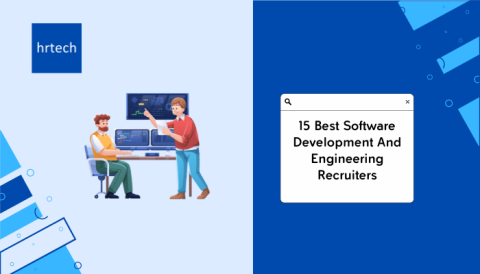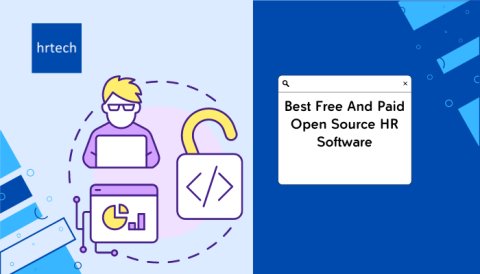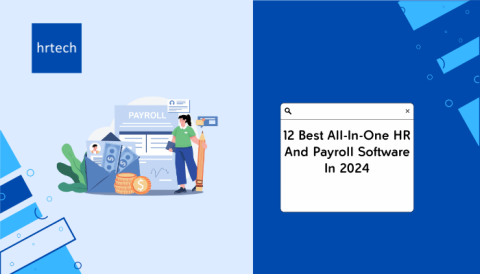Introduction
Managing people efficiently has become just as critical as managing products or services. With workplaces evolving rapidly—thanks to remote work, global hiring, and an increased focus on employee well-being—businesses need smarter solutions to stay ahead. This is where HR tools and software step in.
In this blog, we’ll explore some of the most essential HR tools examples that every business should know. We’ll break down the key categories, highlight top-performing tools like BambooHR and Workday, and guide you through what to consider when choosing the right software for your organization.
What Are HR Tools?
Human Resource (HR) tools refer to digital platforms and software systems designed to streamline various HR functions—like recruitment, onboarding, payroll processing, performance evaluation, and compliance management. These tools automate repetitive tasks, ensure legal adherence, and provide analytical insights to make strategic workforce decisions.
Why do HR Tools Matter?
Gone are the days when spreadsheets were enough to manage your workforce. HR tools help businesses:
- Save time with automation
- Enhance accuracy in data tracking
- Improve employee satisfaction with better onboarding and engagement
- Stay compliant with ever-changing labor laws
- Make data-driven decisions through advanced analytics
In short, they’re indispensable for companies aiming to stay competitive, especially in fast-changing work environments.
Consider leveraging comprehensive platforms like TeamLease Digital’s offerings to ensure you stay competitive and compliant.
Now we take a look at some of the key categories that different hr tools can be categorized into.
Key Categories of HR Tools
Modern HR departments rely on a range of digital tools to handle specific aspects of the employee lifecycle. Below are the core categories of HR tools every business should be familiar with:
1. Recruitment and Applicant Tracking Systems (ATS)
Applicant Tracking Systems are essential for managing the end-to-end recruitment process. They help HR teams post job openings across multiple platforms, sort and filter resumes using AI-driven keyword analysis, manage interview pipelines, and maintain communication with candidates.
Popular tools: Greenhouse, Lever, BreezyHR
2. Performance Management Systems
These tools help businesses establish and track employee goals, align individual performance with company objectives, and facilitate regular feedback and appraisals. They often include features like 360-degree reviews, performance scoring, progress dashboards, and goal-setting frameworks (OKRs, SMART goals).
Popular tools: 15Five, Lattice, Culture Amp
3. Employee Engagement and Feedback Tools
Designed to measure and improve workplace satisfaction, these tools offer pulse surveys, real-time sentiment analysis, anonymous feedback channels, and engagement metrics. They help HR teams gauge employee morale, identify areas of concern, and take proactive steps to enhance workplace culture.
Popular tools: Officevibe, TinyPulse, Qualtrics
4. Learning Management Systems (LMS)
LMS platforms support employee onboarding, training, and continuous development by hosting, managing, and tracking learning content. They often include features like course creation, quizzes, certifications, and progress tracking, making them invaluable for skill development and compliance training.
Popular tools: TalentLMS, Docebo, LearnUpon
5. Payroll and Benefits Administration Platforms
These platforms handle salary calculations, tax deductions, direct deposits, and compliance reporting. They also manage employee benefits such as healthcare, insurance, retirement plans, and paid time off. With support from an Insurance Software Development Company, businesses can enhance these systems for better accuracy, automation, and regulatory compliance.
Popular tools: Gusto, Zenefits, ADP
For seamless payroll and compliance management across multiple geographies, services like those from TeamLease Digital could be essential.
What Makes an HR Tool Truly Effective?

When choosing HR software, these essential features separate the best from the rest:
1. Scalability – Supports growth from startup to enterprise without performance issues.
2. User-friendly interface – Simple, intuitive design that anyone can navigate with ease.
3. Integration capabilities – Easily connects with existing payroll, accounting, and communication tools.
4. Analytics & reporting – Provides clear dashboards and actionable HR metrics for informed decisions.
5. Customization – Adapts to your specific workflows, policies, and business processes.
6. Cost-effectiveness & support – Offers transparent pricing and dependable customer service when needed.
7. Mobile accessibility – Allows HR tasks on-the-go through mobile-friendly apps or platforms.
8. Security & compliance – Protects sensitive data and ensures compliance with labor laws and privacy regulations.
9. Automation features – Reduces manual work by automating tasks like onboarding, payroll, and reminders.
10. Multi-location support – Manages global or distributed teams with location-specific settings and compliance tools.
Moving forward, let’s take a look at some of the leading HR tools that fit different business needs and see what they bring to the table.
Top HR Tools to Enhance Business Operations
Today’s HR professionals need more than just spreadsheets—they need smart, integrated tools that handle everything from hiring and payroll to learning and compliance. Below are some of the most powerful HR tools in the market, along with their standout features and benefits:
1. TeamLease Digital
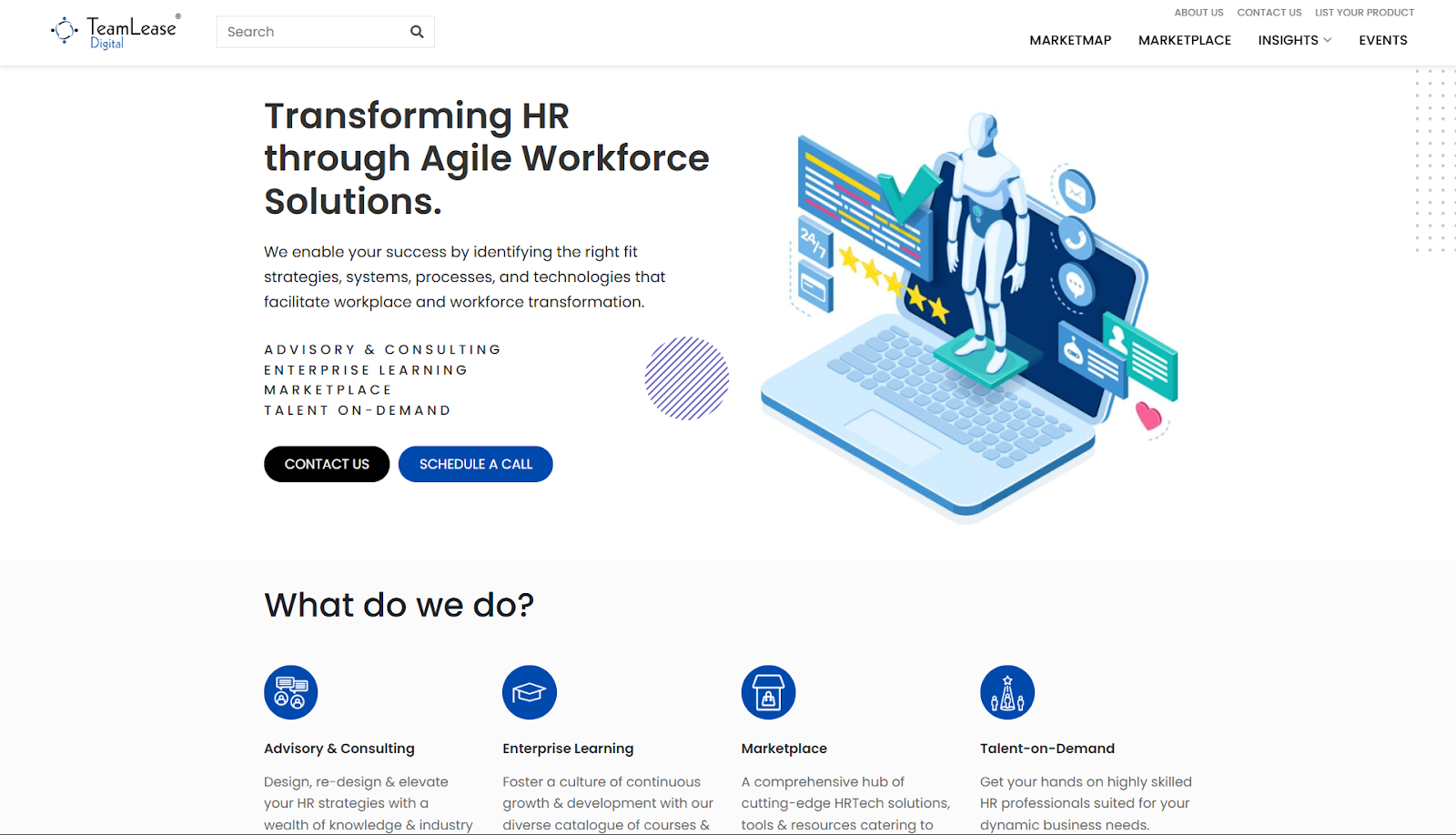
Best for: End-to-end HR tech, workforce transformation, and digital integration for enterprises and startups.
Key Features:
- Scalable staffing and workforce solutions
- HR tech implementation and integration support
- Digital onboarding, managed payroll, and compliance automation
- AI-driven assessments and candidate fit analysis
- Upskilling, reskilling, and custom L&D models
Benefits:
TeamLease Digital serves as a one-stop HR transformation partner, helping mid-to-large enterprises and growth-stage startups digitize and optimize HR processes. It bridges technology and strategy for CHROs, CIOs, and startup founders by offering tailored platforms, blended learning solutions, and rapid hiring support—especially for niche tech roles. Active in India, Southeast Asia, the Middle East, and the US.
2. BambooHR
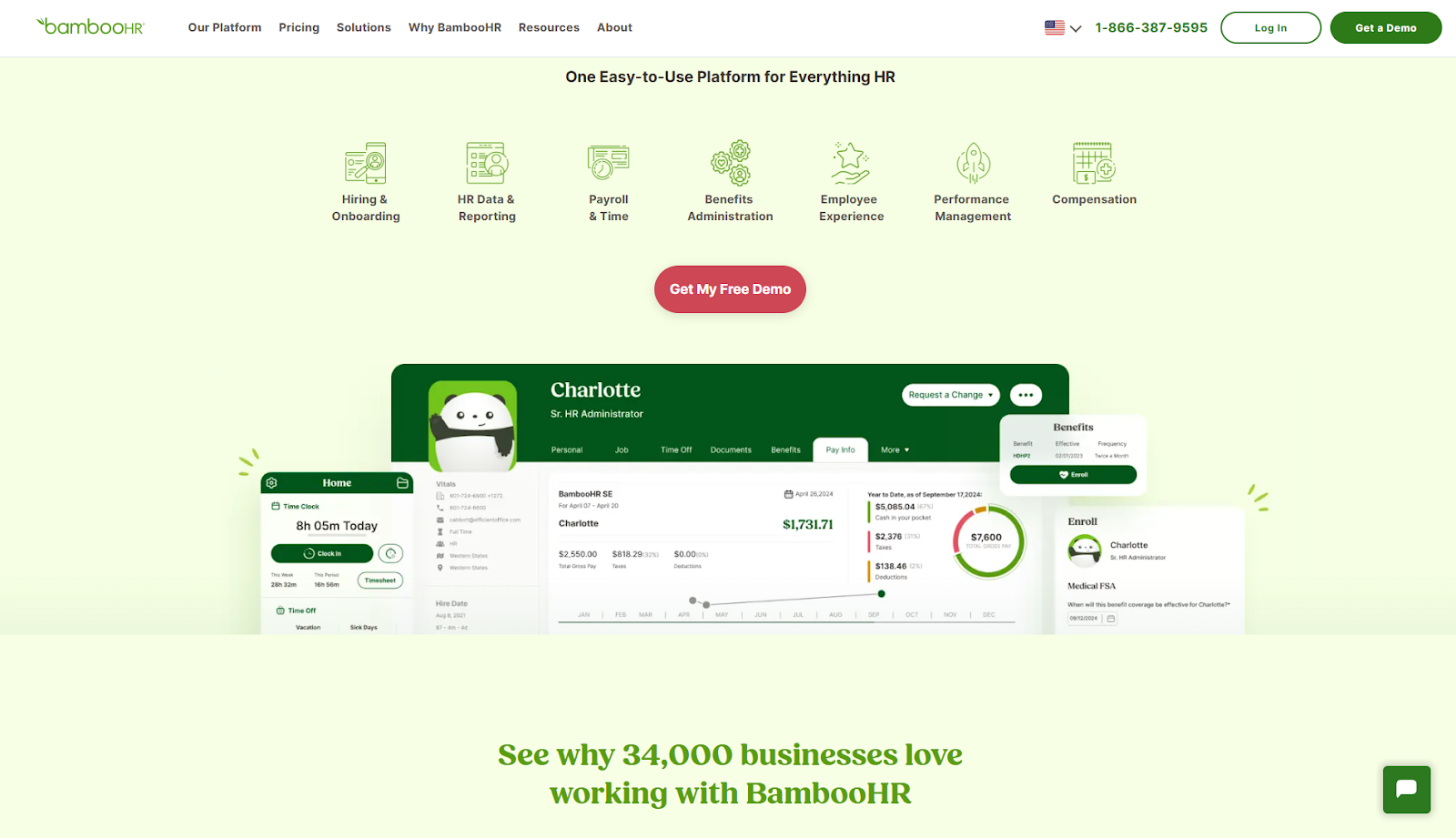
Best for: Small to medium businesses seeking a clean and intuitive HR platform.
Key Features:
- Applicant tracking and onboarding
- Employee data and lifecycle management
- Time-off tracking and performance reviews
- Custom workflows and reports
- eSignature and document storage
Benefits:
BambooHR simplifies everyday HR tasks with a highly user-friendly interface and easy-to-navigate dashboards. It centralizes employee records and streamlines hiring and performance evaluation, making it ideal for HR teams with limited technical bandwidth.
3. Rippling
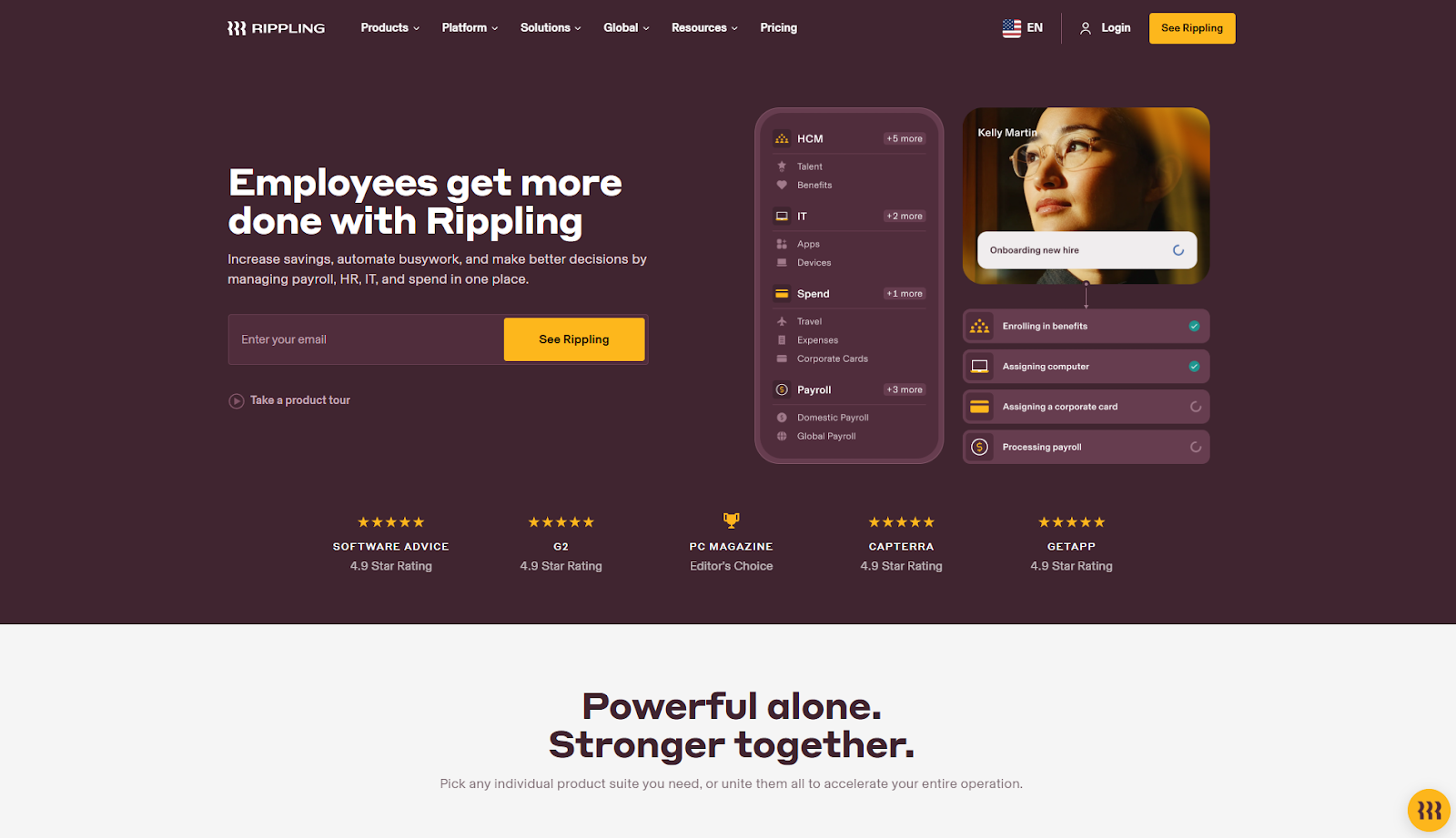
Best for: Companies looking for unified HR, payroll, and IT automation.
Key Features:
- Integrated HR and IT management (device provisioning, app access)
- Global payroll and benefits administration
- Workflow automation for onboarding, offboarding, and compliance
- Custom roles and permission settings
- API access and third-party integrations
Benefits:
Rippling stands out by combining HR with IT management, allowing you to manage employees and their devices from one platform. It saves hours in administrative work and scales well for startups and tech-heavy companies looking to automate back-office tasks.
4. Workday
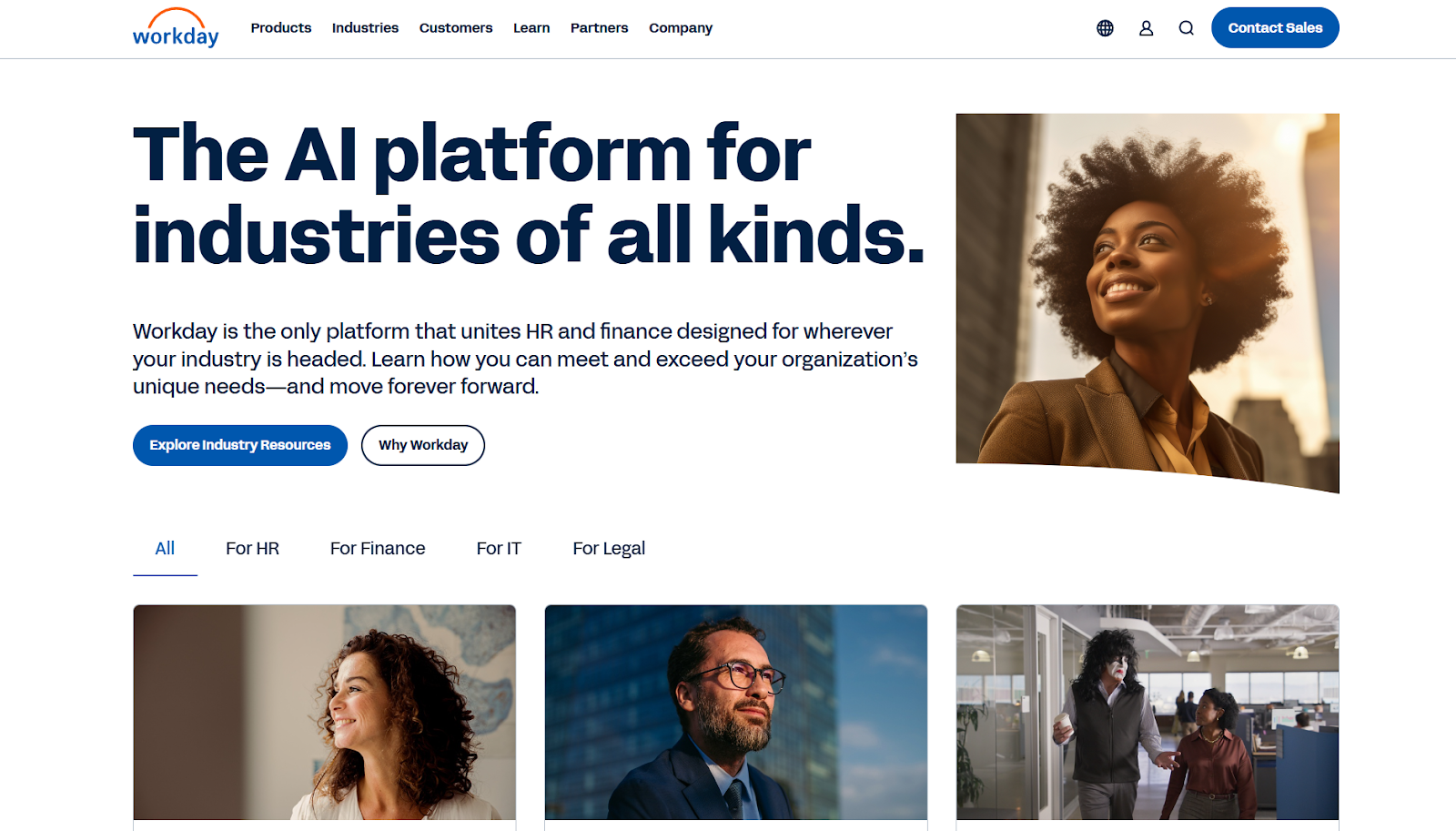
Best for: Enterprises needing advanced analytics, HR planning, and financial insights.
Key Features:
- Workforce and succession planning
- Talent management and recruitment analytics
- DEI dashboards and skills intelligence
- Time tracking, payroll, and expenses
- Real-time data and AI-driven insights
Benefits:
Workday is a robust enterprise-level tool designed to unify human capital management (HCM) with financial planning. It’s a go-to solution for HR leaders and CIOs who need high-level visibility into organizational performance, workforce readiness, and long-term strategic planning.
5. ADP
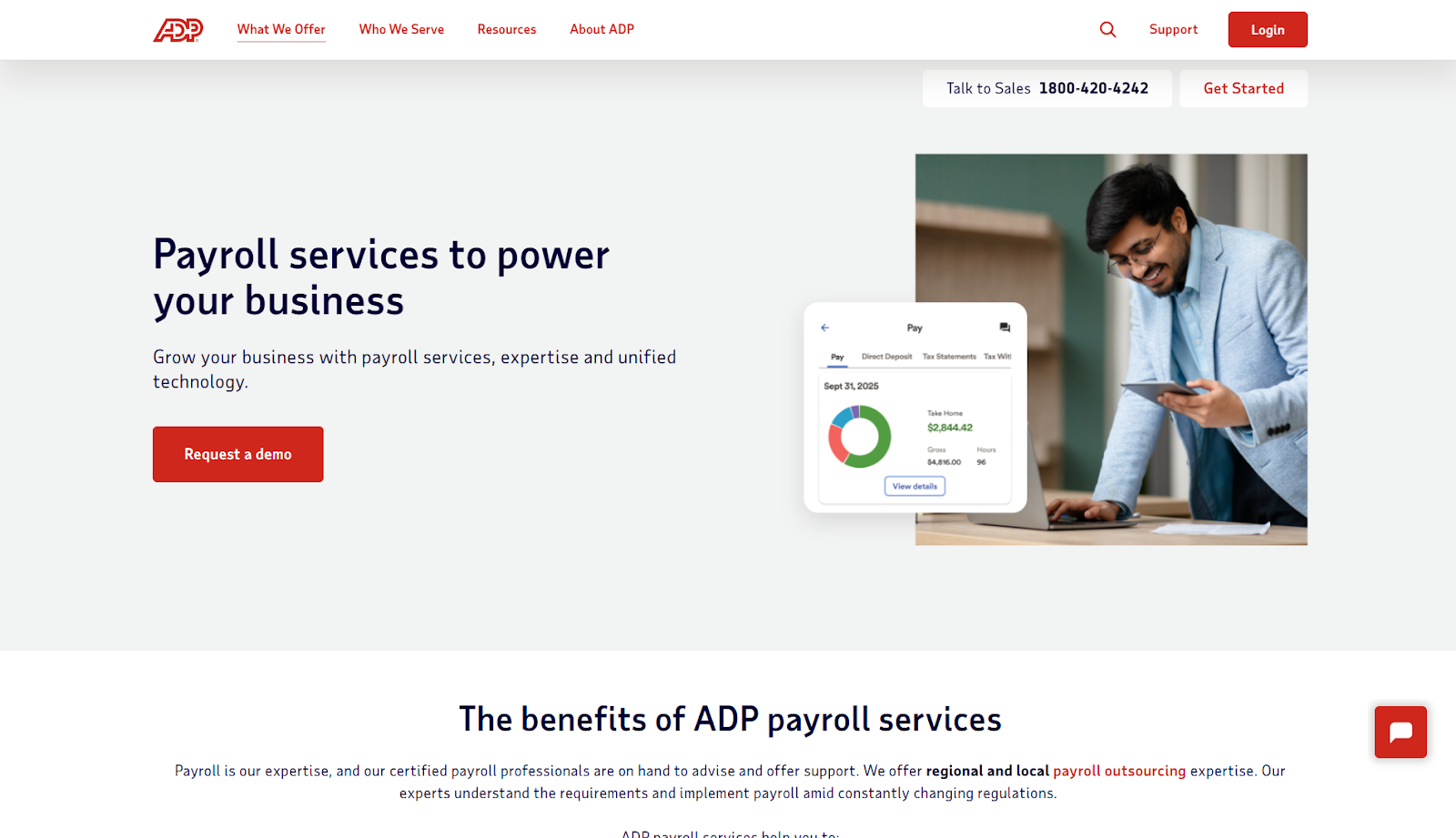
Best for: Businesses that prioritize reliable payroll and compliance across multiple regions.
Key Features:
- End-to-end payroll and tax processing
- Employee self-service portal
- Time and attendance tracking
- Benefits administration and ACA compliance
- Multi-country payroll and workforce analytics
Benefits:
ADP’s reputation as a payroll giant is well-earned. It’s ideal for companies with distributed workforces or complex payroll setups. The platform also supports deep compliance tracking and is especially helpful for companies operating across different states or countries.
6. Zoho People
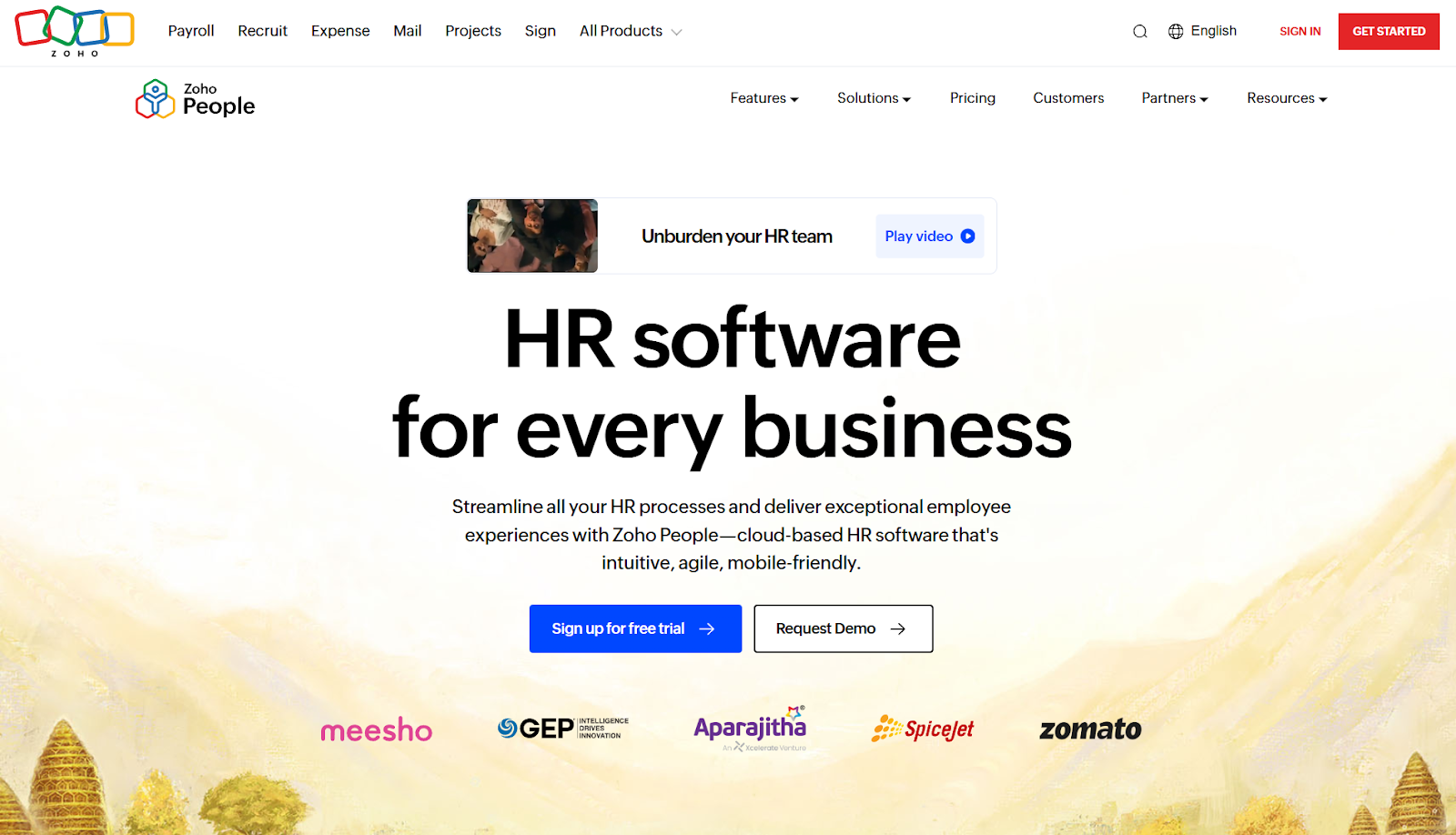
Best for: Small to mid-sized businesses needing customizable and budget-friendly HR software.
Key Features:
- Leave and attendance management
- Performance appraisals and goal tracking
- Workflow automation and approval chains
- Custom forms and document management
- Seamless integration with Zoho suite and other apps
Benefits:
Zoho People offers great flexibility at an affordable price. With highly customizable modules and automation capabilities, it’s perfect for businesses that want full control over HR operations without breaking the bank.
7. Gusto
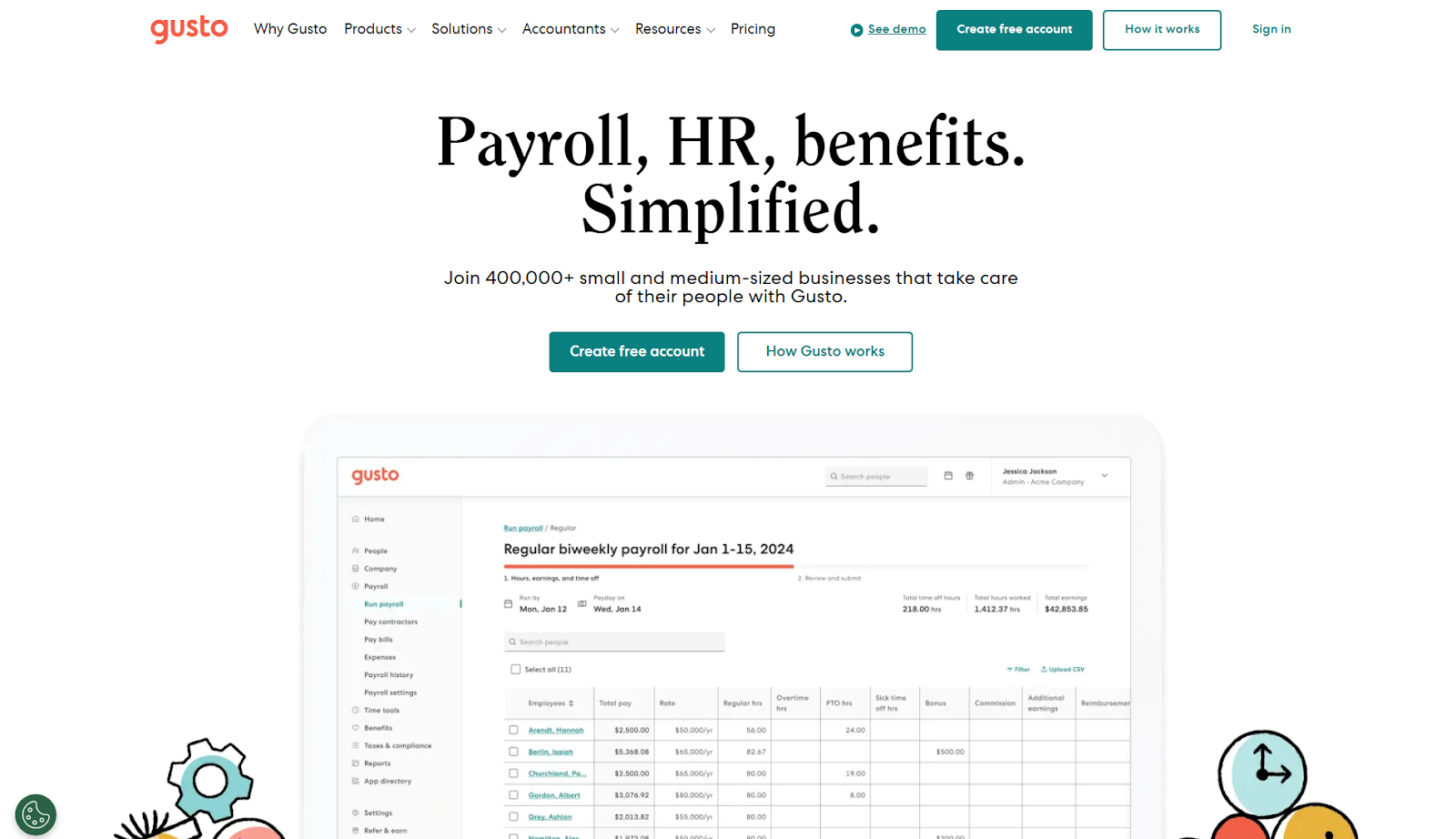
Best for: Small businesses looking for an all-in-one HR, payroll, and benefits platform.
Key Features:
- Full-service payroll with automated tax filings
- Employee benefits administration (health, dental, 401(k))
- Onboarding checklists and offer letter templates
- Time tracking and PTO management
- Employee self-service portal
Benefits:
Gusto is designed with simplicity in mind. It takes the stress out of payroll and compliance for small teams, offering automation features and built-in benefits management. With transparent pricing and great customer support, it’s ideal for startups and growing businesses that want to run HR with minimal manual effort.
8. Lattice
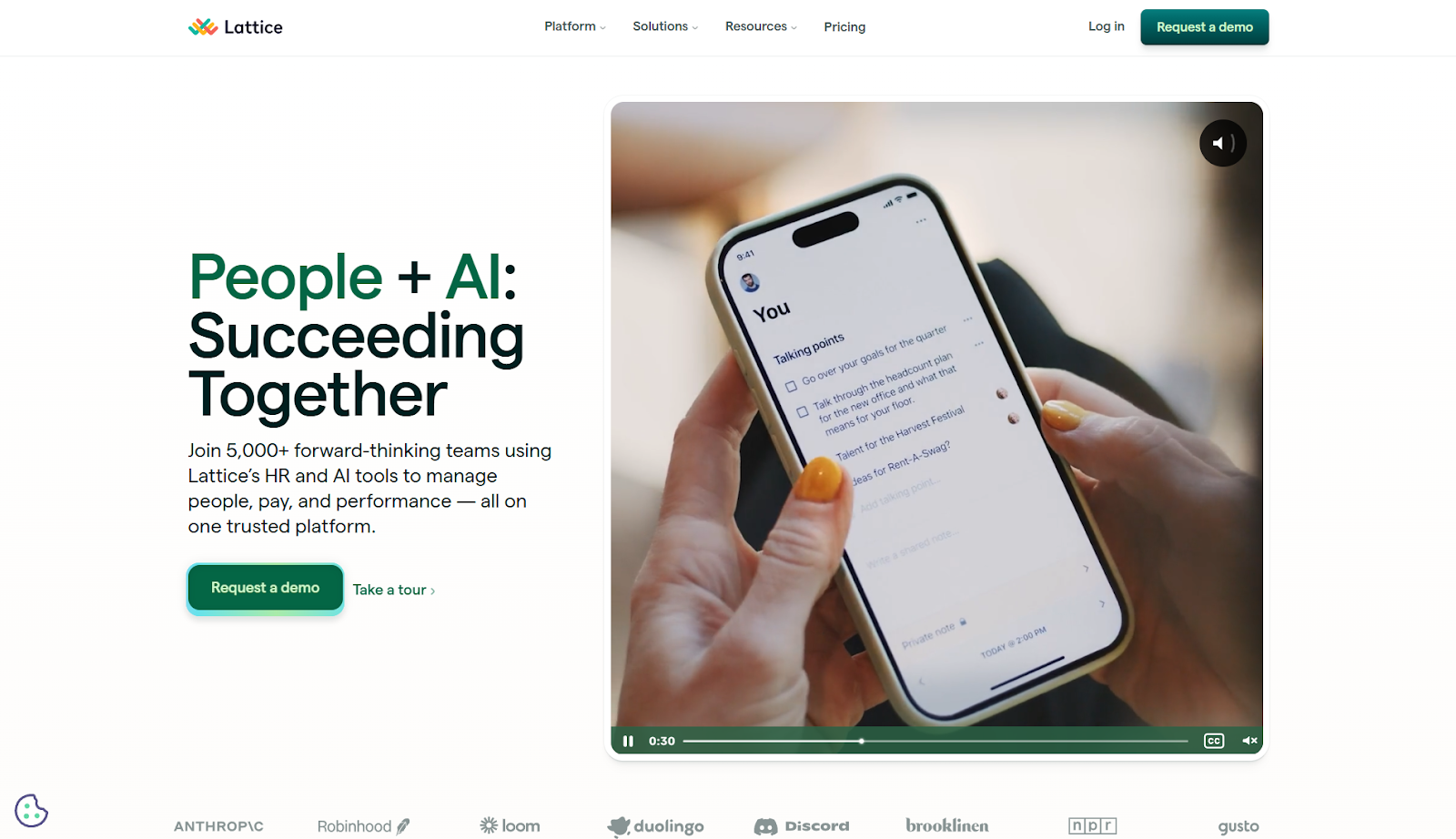
Best for: Companies focused on performance, engagement, and people development.
Key Features:
- Continuous performance tracking and OKR alignment
- 1-on-1 meeting tools and feedback cycles
- Employee engagement surveys and analytics
- Career development paths and goal setting
- DEI tracking and reporting
Benefits:
Lattice helps organizations build high-performing teams through frequent feedback and structured development. It creates a culture of growth and transparency, making it a popular choice for modern organizations that prioritize people-first performance strategies.
9. LinkedIn Talent Solutions
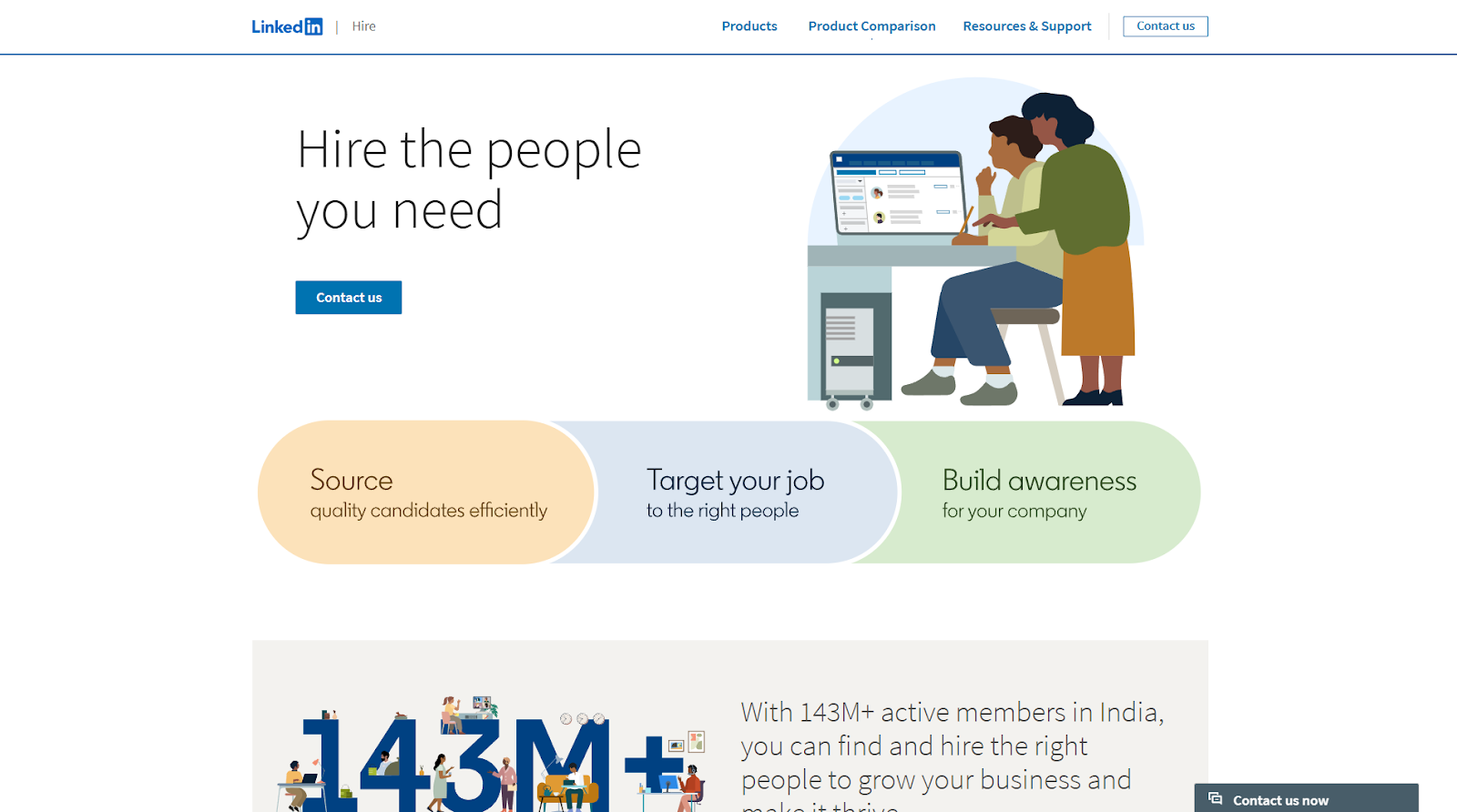
Best for: Recruiting, employer branding, and candidate sourcing.
Key Features:
- AI-powered candidate recommendations
- Sponsored job postings and targeted reach
- Talent Insights for labor market data
- LinkedIn Recruiter for active sourcing
- Employer branding through company pages and updates
Benefits:
More than just a networking site, LinkedIn is a powerful recruitment engine. HR teams use its Talent Solutions to find quality candidates, analyze market trends, and strengthen employer branding. It’s especially effective for hard-to-fill roles or competitive job markets.
10. SAP SuccessFactors
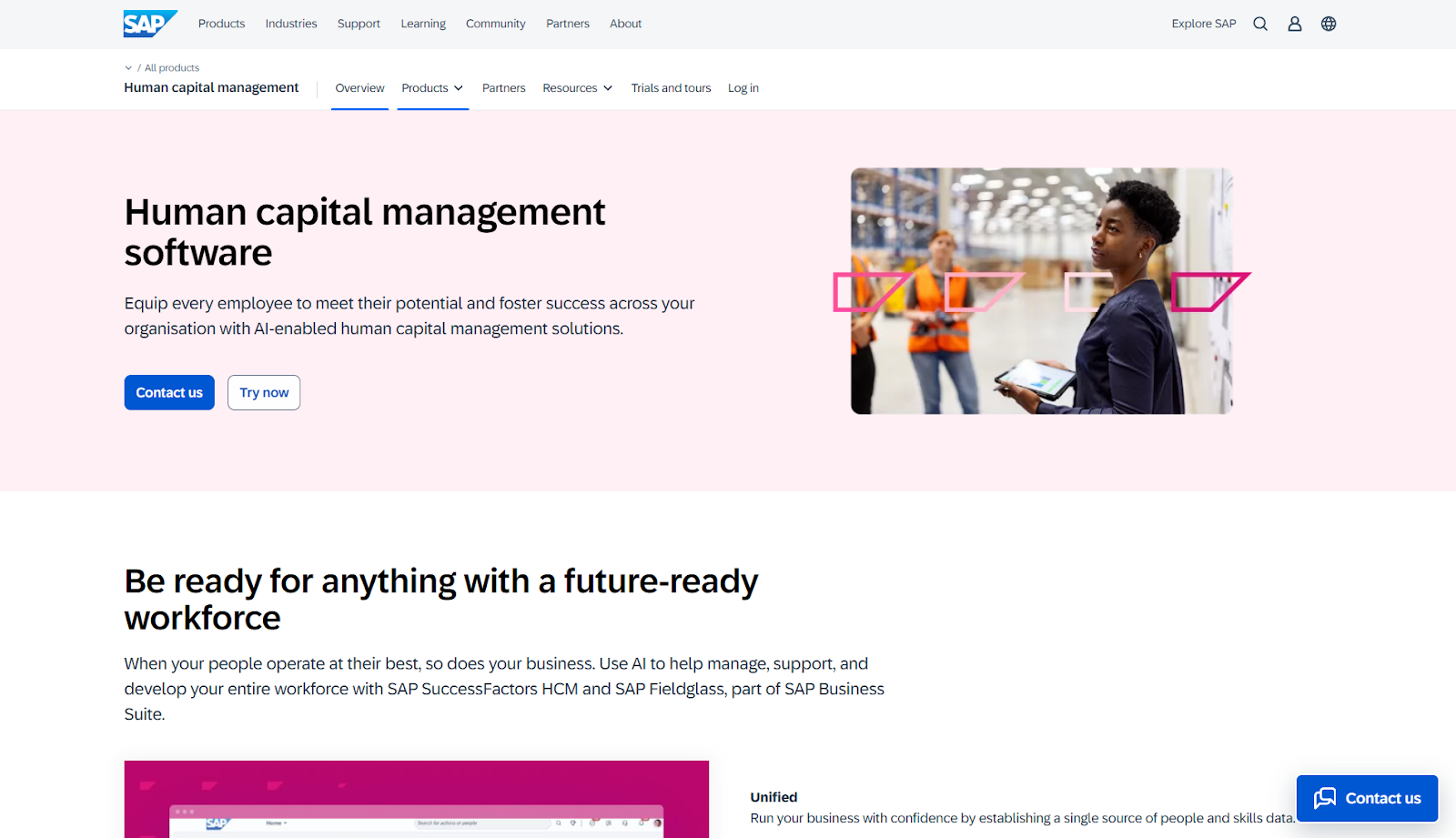
Best for: Large enterprises needing a complete HCM suite with global capabilities.
Key Features:
- Core HR and payroll services
- Workforce analytics and planning
- Recruiting and onboarding modules
- Learning and development tools
- Succession and career planning
Benefits:
SAP SuccessFactors is ideal for multinational organizations looking for an enterprise-grade HCM solution. It integrates HR functions with deep analytics and scalable tools, offering flexibility and compliance at a global level. Its modular design allows companies to adopt features as needed.
Let’s look at how choosing the right tool can greatly impact your organization’s overall efficiency and success.
Key Considerations When Selecting the Right HR Tools
Choosing the right HR tool requires a thoughtful approach that aligns with your organization’s current needs and future goals. Here are important factors to consider:
- Identify current HR challenges and bottlenecks
- Match tool capabilities with your business size and growth projections
- Prioritize ease of use and intuitive user experience
- Ensure seamless integration with existing software and platforms
- Confirm compliance with data privacy and labor regulations
- Evaluate data security features like encryption and access controls
- Compare pricing plans, scalability, and return on investment
- Assess the quality and availability of customer support
- Check for mobile accessibility and remote functionality
- Look for customization and workflow flexibility
- Review real-user feedback and product ratings
- Ensure tools support hybrid and remote work models
- Consider automation capabilities for repetitive tasks
- Analyze reporting and analytics features for informed decisions
- Verify the availability of localization and multi-language support
- Ensure alignment with organizational culture and processes
- Test scalability for multi-location or international operations
- Look for modular tools that allow phased implementation
- Confirm vendor credibility, reputation, and market longevity
- Prioritize tools with regular updates and an innovation roadmap
Partnering with TeamLease Digital, known for their expertise and adaptability, can help navigate these decision points effectively.
Conclusion
As the workforce becomes increasingly digital and distributed, investing in scalable, integrated, and intelligent HR solutions will give your business the edge it needs to thrive. Whether you’re a startup seeking plug-and-play efficiency or a large enterprise aiming for full-scale digital transformation, choosing the right tools is key to building a productive and future-ready workforce.
Looking for expert guidance and all-in-one HR solutions?
TeamLease Digital helps businesses of all sizes modernize their HR operations with smart technology, end-to-end staffing services, and workforce transformation strategies.
Partner with TeamLease Digital today and take the first step toward a seamless, tech-powered HR ecosystem that delivers real results.

